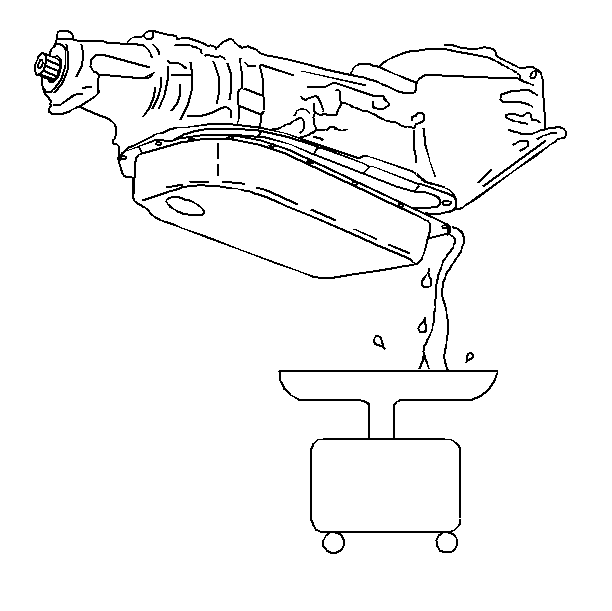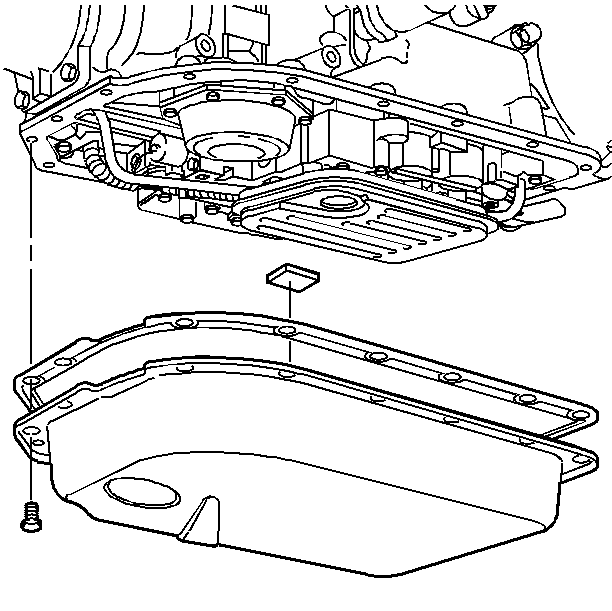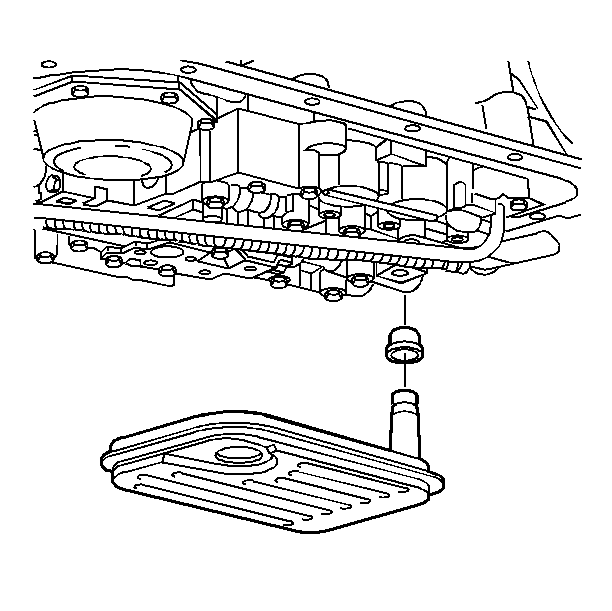Removal Procedure
- Raise the vehicle. Support the vehicle with safety stands. Refer
to General Vehicle Lifting and Jacking in General Information.
- Remove the oil pan bolts from the front and the sides only. Loosen
the rear oil pan bolts about four turns.
Notice: Pry the oil pan down carefully in order to prevent damage to the transmission
case or the oil pan sealing surfaces.

- Place a drain pan under the transmission oil
pan.
| 3.1. | Lightly tap the oil pan loose with a rubber mallet or pry down
in order to allow the fluid to drain. |

- Remove the remaining oil pan bolts, the
oil pan, the gasket, and the magnet.

- Remove the oil filter and the multi-lip
seal. The seal may be stuck in the pump.
- Inspect the filter: Pry open the filter and look inside for the
following evidence of root cause diagnosis:
| • | Bronze slivers indicating bushing wear |
- Clean the transmission case and the oil pan gasket surfaces with
solvent. Air dry the transmission case.
- Remove all traces of old gasket material.
Installation Procedure
Tools Required
J 36850
- Lubricate lightly a new oil filter neck seal assembly. Use J 36850

- Install the following parts:
| 2.1. | A new oil filter neck seal assembly |
| 2.2. | A new oil filter assembly |

- Install the following parts:
| 3.1. | A new transmission oil pan gasket |
| 3.2. | The magnet into the oil pan |
| 3.4. | The oil pan retainer bolts |
Tighten
| • | 4L80E--Tighten the bolts to 24 N·m (18 lb ft). |
| • | 4L60E--Tighten the bolts to 11 N·m (97 lb in). |
Notice: Use the correct fastener in the correct location. Replacement fasteners
must be the correct part number for that application. Fasteners requiring
replacement or fasteners requiring the use of thread locking compound or sealant
are identified in the service procedure. Do not use paints, lubricants, or
corrosion inhibitors on fasteners or fastener joint surfaces unless specified.
These coatings affect fastener torque and joint clamping force and may damage
the fastener. Use the correct tightening sequence and specifications when
installing fasteners in order to avoid damage to parts and systems.
- Remove the safety stands.
- Lower the vehicle.
- Add new automatic transmission fluid. Refer to
Fluid Capacity
and to
Transmission Fluid Check
- Check the oil pan seal for leaks.





